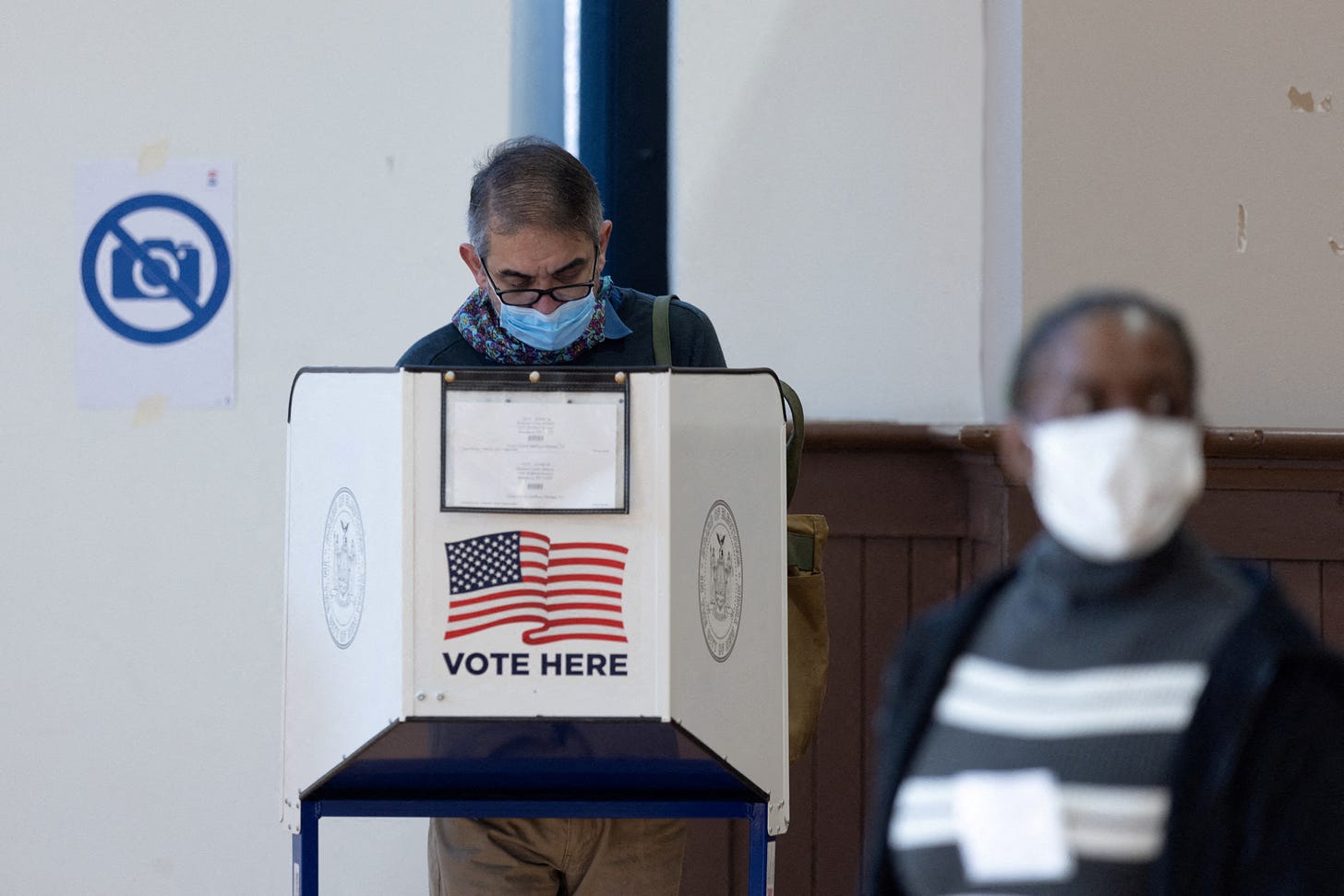It wasn't a night of Republican paradise after all. So where does the party go from here?
Midterms are always political headaches for presidents. Despite original polling suggesting a nightmare of results, the Democrats fared better than expected.
A set of elections no president really wants. Situated in the middle of a president’s term, they usually come with unnecessary political headaches attached, with jubilation rarely expressed by any White House incumbent.
We can see why they’re such a pain in the backside (and this statistic is quite extraordinary): in each set of midterms held from 1938 until 1998, all sitting presidents, Democrat and Republican, lost seats in the House of Representatives. Thus, not one president gained seats in the House at the midterm stage of a presidency. Remarkable indeed it is, we can now see, with reasonable understanding, why they prove such a headache.
It is not a considerably rosier picture in the Senate either, with only two presidents - in 1962 for John F. Kennedy and 1970 for Richard Nixon - gaining seats during this very same period.
So, this hypothesis of them being hated can certainly be proven with cold facts.
But, as evidenced by the Democrats’ poor set of showings in 2010, two years into the Obama administration, where the party lost 63 House seats and six in the Senate, they can prove somewhat confusing, with - in this case - Obama being re-elected just two short years later. A pain in the backside, yes, but somewhat irrelevant with regard to the presidential election two years thereafter.
Joe Biden never expected a night of utopia and those of a staunch Democrat voting history didn’t either. After all, with economic dysphoria spreading across the world, inflation and gas prices notably peaking, and division rife over abortion and other issues, any president would certainly feel the heat.
The results, not the polls, which we now know to have been particularly incorrect (not the first time), were most distinct. It is worth remarking that, at the time of writing, votes are still being counted in battleground states, with some Senate seats holding run-off contests next month, in Georgia for example.
Alaska, Arizona and Nevada, along with Georgia, are still counting their Senate races, with the numbers seemingly wafer-thin. With regard to the House, the Republicans are still likely to win, with seat gains from the Democrats in Florida, Iowa, New York and Wisconsin.
So where do we all go from here?
In a piece I wrote last week, I laid out the consequences of the election result, a Republican victory at the time, it seemed. With a resounding victory, I said, Biden could assert his authority; a defeat, meanwhile, would cause him further headaches along the path of the next two years.
It is difficult to define these results, and the reactions tell us so. Democrats are celebrating, to an extent, despite the fact they look set to lose the House. Republicans, equally, are celebrating, too, but are arguably (and understandably) disappointed because it could have been so much more for the party, especially with the Senate now on a knife-edge.
For Donald Trump, it’s difficult. A big announcement next Tuesday from Mar-a-Lago, he spelt out, at a recent rally in Ohio. But that was all on the premise of the midterms being an overwhelming success, which, frankly, they weren’t. And I can say that because I believed every word of it: I thought Biden was going to be politically wounded whilst Trump would stand his ground as the victor post-conflict. None of it came to fruition.
Now the results are widely familiar, does Trump reflect on the result, with some humility (perhaps he has some?!), and decide not to run for the Republican nomination? Thus, does he reflect, furthermore, that Ron DeSantis - the re-elected Florida governor - would actually be better placed to run than him? Or does he do what most expect: announce his intention to run once again?
It all feels a little disjointed nonetheless. Not only with Trump, but what effects would the midterm results have on Biden’s supposed chances of running again in 2024? Perhaps he will. Whatever happens, progressives can at least sigh some relief at results which weren’t quite as bad as once predicted.



